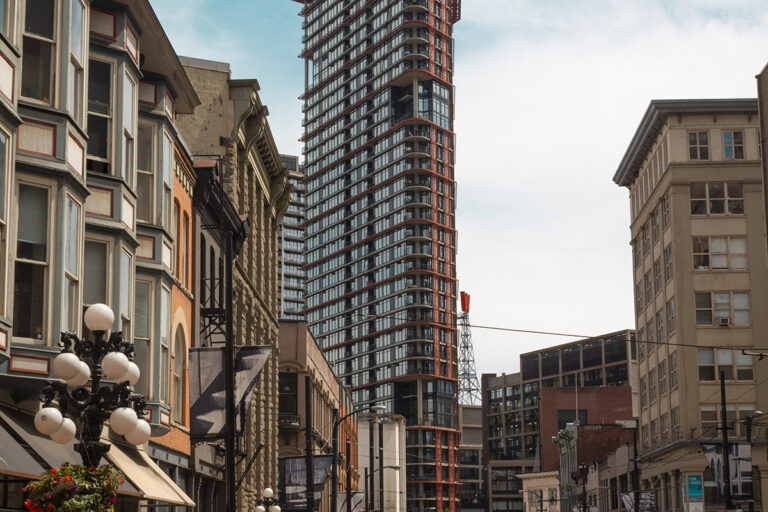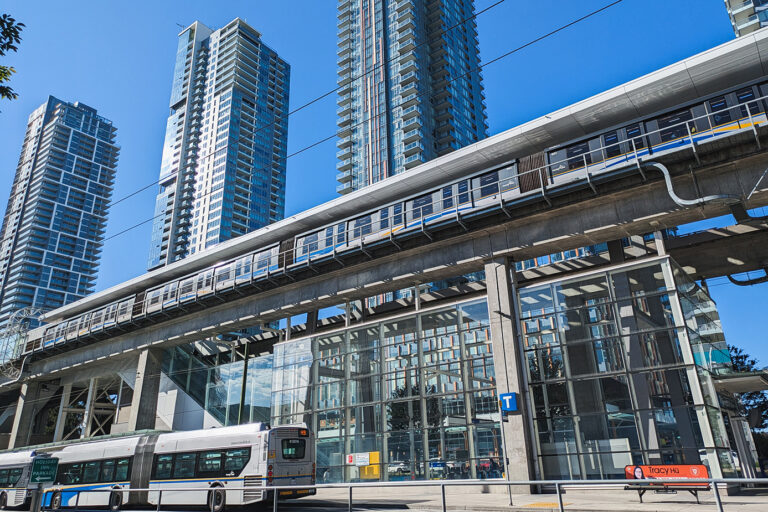EXECUTIVE SUMMARY
Certainty. The singular most important factor developers look for when planning future projects. Unfortunately, in today’s development environment, it’s also the hardest to find. Poorly timed and often misaligned government policies continue to create obstacles for private developers, the very group most capable of addressing British Columbia’s housing crisis.
This Quarterly Report will provide an overview of the national and local real estate market, general economic indicators, while taking a closer look at Maple Ridge through the development lens. Traditionally overlooked by larger developers, Maple Ridge is positioned for growth with Area Plans such as the Lougheed Transit Corridor (TCAP) moving forward and with initiatives like the “Development Services Optimization Project” primed to significantly reduce approval timelines, Maple Ridge is likely to attract development interest in the future.
– DANIEL LINK, Associate Vice President
INTEREST RATES
At its last meeting on September 17, 2025 — The Bank of Canada cut its benchmark rate by 0.25% (a single cut) to 2.5%, and most bank prime rates fell to 4.7%. This cut came despite core inflation remaining above the BoC’s target range and in the face of other signs of economic slowdown including rising unemployment.
Source: True North Mortgage
INFLATION
In August, total CPI inflation was 1.9%. At a glance, that seems pretty good, close to achieving the Bank of Canada’s (BoC) 2% target. However, the preferred measure of “core inflation” suggested that inflation was actually around 3%. One important reason for this difference was the removal of the consumer carbon tax. “inflation excluding taxes was 2.4% in August.” It would seem underlying inflationary pressures are still entrenched as Q3 comes to a close.
Source: RBC Canadian Inflation Watch – RBC & Bank of Canada
BOND MARKET
Canadian government bond yields have remained relatively stable, supported by fiscal discipline, while corporate bonds face risks in interest rate-sensitive sectors. “In Canada, the curve has normalized, with five- and ten-year government bonds yielding around 2.74% and 3.17%, respectively”. This normalization opens up opportunities for investors to extend duration, as the risk/reward for holding longer-dated paper has improved relative to the environment of 2022–2023.
Source: CIBC
GDP
The advance estimate of August GDP was “essentially unchanged” — those estimates have been exceptionally revision prone but would leave overall GDP growth tracking broadly in line with our own forecast for a 0.5% (annualized rate) increase in GDP in Q3 — slow but positive growth rather than a repeat of the Q2 contraction.
Source: RBC
METRO VANCOUVER
About 2,500 new condos are sitting unsold and empty in Metro Vancouver, according to the Canada Mortgage and Housing Corporation (CMHC). “Costs have escalated so much in the last 10 years that to build a unit is out of the price range of 80 per cent of the public in the Metro Vancouver area,” McMullin said president and CEO of Urban Development Institute.
Source: GVRealtors
BC HOUSING
The British Columbia Real Estate Association (BCREA) released its 2025 Third Quarter Housing Forecast Update on August 21, 2025. With slower sales over the past few years, provincial resale inventory has stabilized at just over 40,000 listings, a level not seen in over a decade. As a result, we expect regions with stronger demand to experience modest price growth, while weaker markets such as the Lower Mainland are expected to face downward pressure on prices.
Source: BCREA
NATIONWIDE
“Return-to-office” dominated the conversation in Q3, which saw in-office mandates for many industries. Finance, government, insurance, and resources all had positive momentum, leading to new leasing mandates and a strong demand for Downtown space in the foreseeable future. Office vacancy declined nationally, and in most markets, with a combination of increased leasing demand and lack of new supply.
.
Source: News Wire


